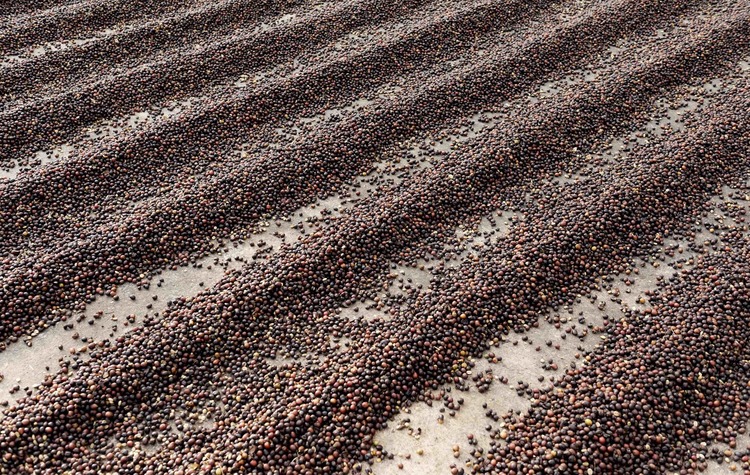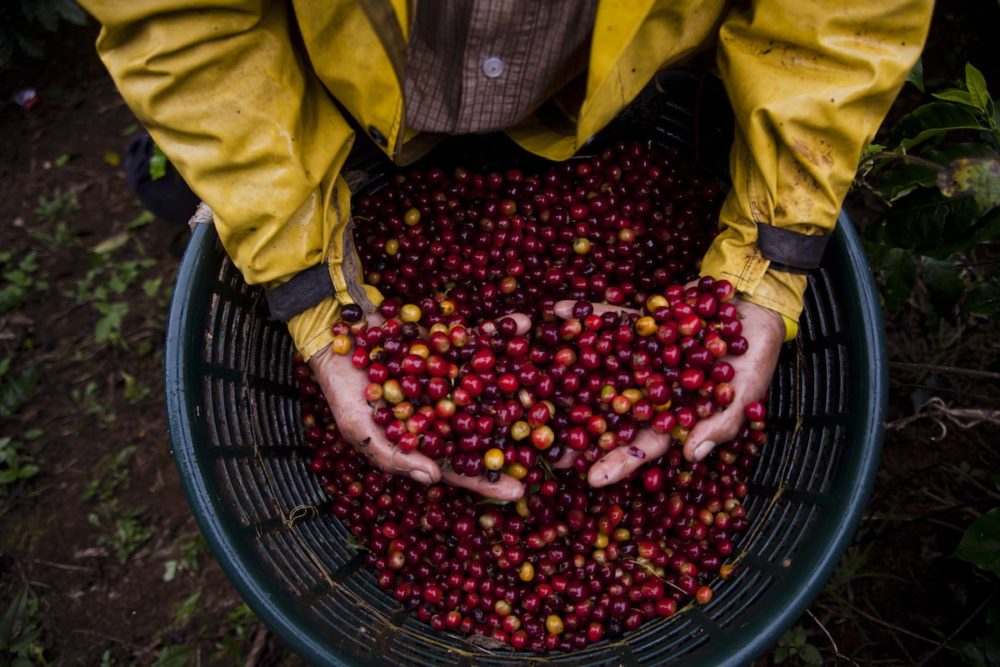In Costa Rica’s Central Valley, Hacienda Sonora sits at the foot of the celebrated (and active) Poás Volcano. On this 100-hectare farm, 65 hectares are dedicated to shade coffee, 10 hectares to sugarcane and 25 hectares are wild forest reserve.
Alberto Guardia began growing coffee at Hacienda Sonora 45 years ago. His son Diego was born and raised on Sonora and then left to earn a Mechanical Engineering degree at San Diego State University. After graduating, he worked for two years as a construction engineer in California, before deciding to return home to work with his father and improve and maintain the farm’s operation.
Coffee Exporter, Ceca
In 2015, Diego began to also work for Ceca, InterAmerican’s “sister” company in Costa Rica, to focus on its micro-lot program. The same year, the Palmichal Micro-Mill opened and began processing from 5- to 100-bag lots from 30 specific farms.
Ceca traditionally sources SHB, Fancy SHB and Tarrazu green coffee from more than 2,000 coffee growers in the Tarrazu region. It also has a nursery program that experimented with planting 350,000 plants in 2016, using high-quality, rust-resistant varieties.
Hacienda Sonora
Sonora’s coffees grow amongst indigenous trees and other diverse vegetation that provide a great environment for quality and improve the chemistry of soil that’s already naturally rich from volcanic ash. Thanks to the farm’s diverse ecosystem, many different species of birds and animals make their homes on the land.
Sonora has a well-earned reputation for producing quality micro-lots featuring specific varietal and processing separation. It also strives to have a positive impact on the environment and people that surround its business. All the energy consumed by the farm is 100 percent renewable energy that’s harvested on the farm and powers the mill and electricity for workers.
Venecia Natural
Sonora’s Venecia Natural is 100% natural processed and comes from a Caturra varietal. It was developed through natural selection in the area of Venecia de San Carlos, Costa Rica. The plant looks like a dwarf Caturra and takes a very long time to ripen, which helps to create a very high Brix content. It’s also known for its rich acidity.
This coffee is sun-dried for 14 to 18 days and covered with black plastic every day around 3 p.m., when the warm afternoons begin to transition into cold nights. When it’s between 18 and 20 percent moisture, the coffee is stored for 6 days and then brought back out. (This is one of Sonora’s special tricks for enhancing cup quality and uniformity!) Right at the end of the drying process, the coffee is put in a drum dryer for about three hours, to create even better uniformity in the cup. The mass temperature never exceeds 37.5 C (99.5 F).
Cupping notes: Rich and complex. Juicy acidity and notes of Meyer lemon, florals and green apple.
A DAY AT OUR PATIOS from Diego Guardia on Vimeo.



